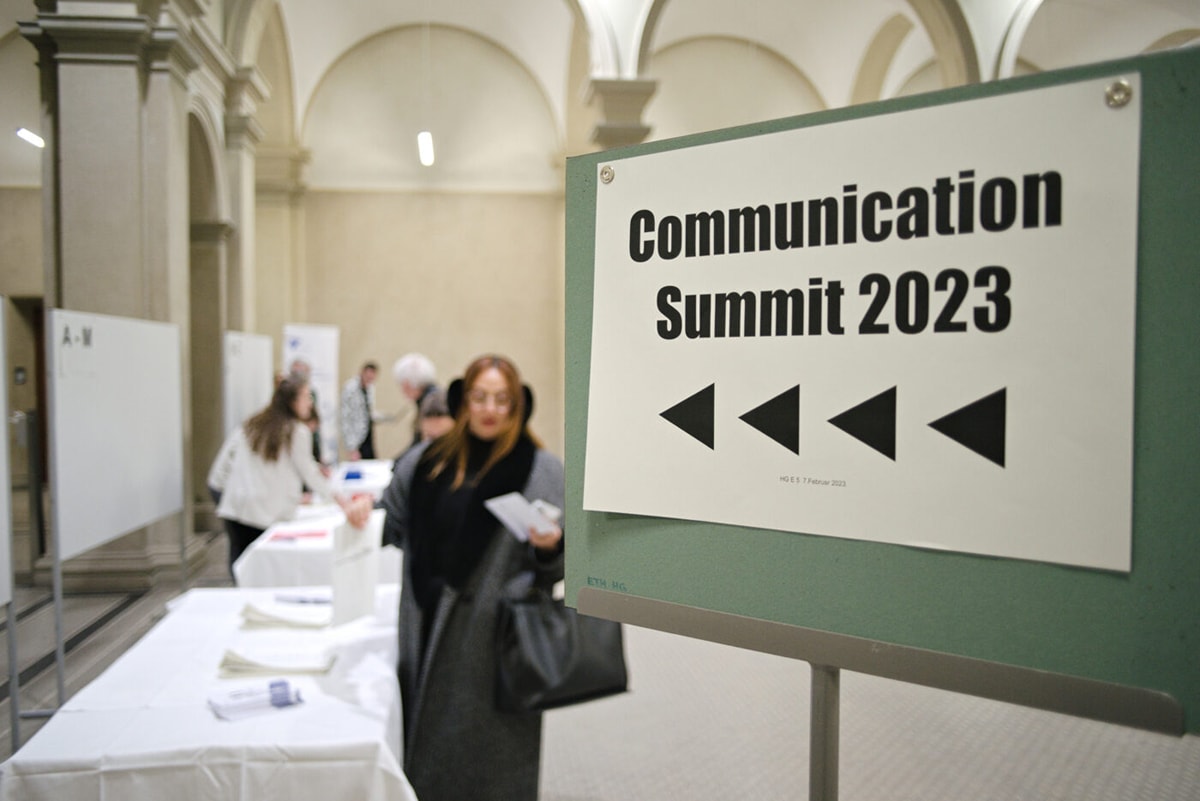Communication & Trust: Lively discussions at the Communication Summit
Am Dienstag fand nach zweijähriger Pandemie-Pause der Communication Summit wieder statt. Rund 150 Gäste besuchten den Anlass der Zürcher PR Gesellschaft und des Zürcher Pressevereins zum Thema «Kommunikation & Vertrauen – wem können wir noch glauben?».

At the beginning, the focus was particularly on the Corona pandemic and its impact on trust in institutions. Political scientist Michael Hermann, however, put the division of society that had been conjured up into perspective: "The vote in November 2021 showed that direct democracy works like group therapy." Economist and former vice president of the Covid scientific task force Monika Bütler also confirms this: "I sense a strengthened trust in science, even if rejection has accentuated at the same time."
For Christian Dorer, editor-in-chief of the Blick Group, the pandemic showed one thing above all: "When there is an extraordinary need for news, the majority fall back on the classic media." And Gerd Scheller, CEO of Siemens Switzerland, noted that the pandemic had taught both business and society valuable lessons about crisis management.
"Corona Leaks" in Focus
The panel discussion focused on the so-called "Corona Leaks," which evidenced a lively e-mail exchange between Ringier CEO Marc Walder and Alain Berset's head of communications Peter Lauener. Dorer in particular, who is part of the Ringier Group along with the Blick Group, had to take a stand on the issue. He made it clear that the information did not come from his own carpet department, but was researched by himself.
Dorer also defended the general course of Corona's reporting: "The View has a tendency to exaggerate. But when reality is already so crazy, we can't add to it. That's why we've advocated a responsible course." But he also acknowledged mistakes made over the past three years, "But not the ones we're being accused of now."
When asked whether a boss could not know what his communications manager was up to, Gerd Scheller had a clear answer: "I think it's possible that Alain Berset didn't know everything. At Siemens, we try to cultivate a culture of trust, and not everything is signed off."
Trust needs dialogue
Scheller emphasized that dialogue is important in order to be able to build trust in the first place. Monika Bütler agreed: "You have to cultivate semi-institutionalized exchange between science and politics in order to better manage crises." This, she said, had just been impressively demonstrated by Corona. And Michael Hermann once again underlined the strength of direct democracy for dialogue: "Opponents of vaccination had the opportunity to make their opinion heard. Within a very short period of time, they had referendums, but then failed. In Switzerland, we don't simply wipe away different opinions as we do in other countries."









